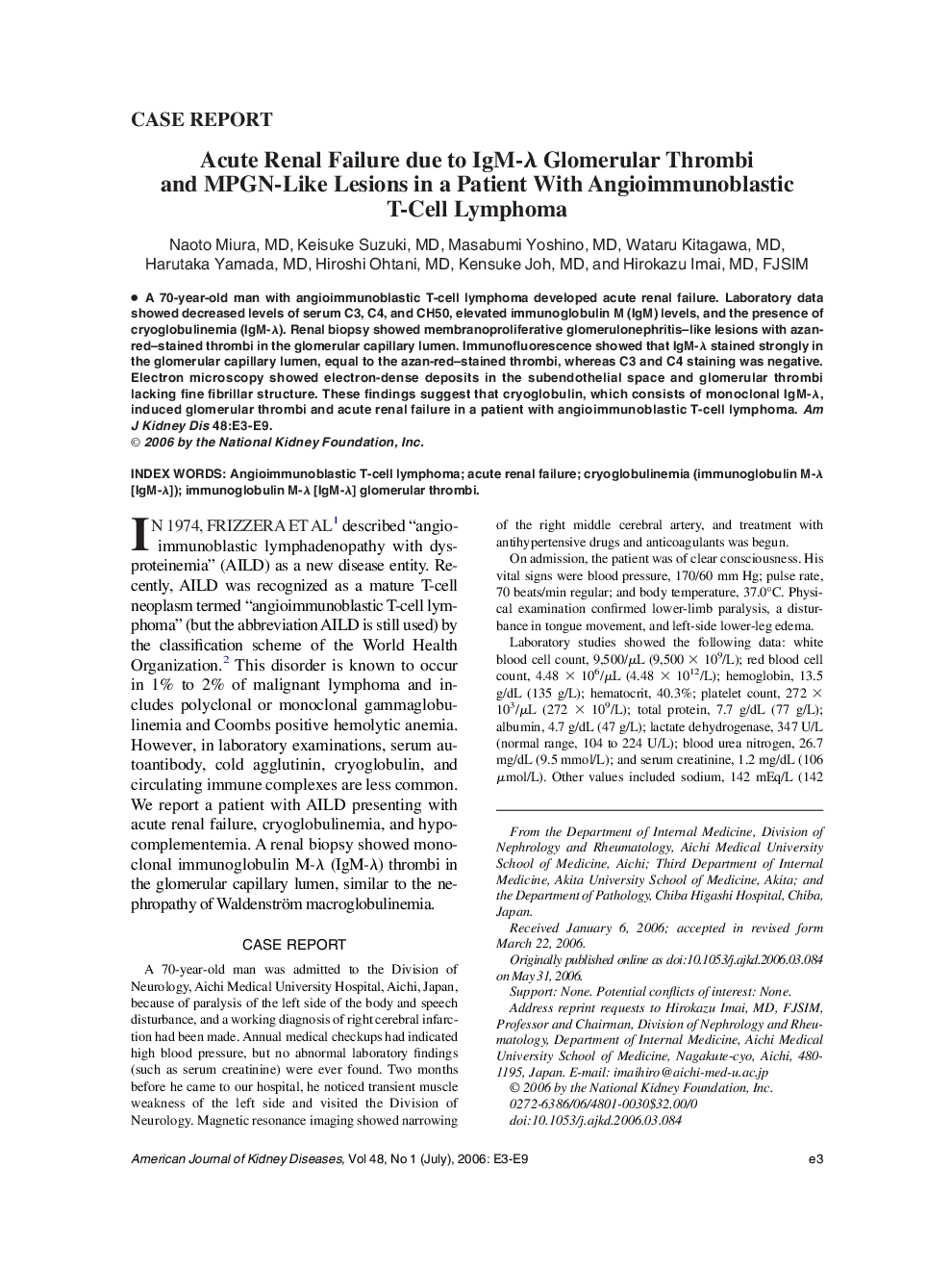| Article ID | Journal | Published Year | Pages | File Type |
|---|---|---|---|---|
| 3852704 | American Journal of Kidney Diseases | 2006 | 7 Pages |
Abstract
A 70-year-old man with angioimmunoblastic T-cell lymphoma developed acute renal failure. Laboratory data showed decreased levels of serum C3, C4, and CH50, elevated immunoglobulin M (IgM) levels, and the presence of cryoglobulinemia (IgM-λ). Renal biopsy showed membranoproliferative glomerulonephritis-like lesions with azan-red-stained thrombi in the glomerular capillary lumen. Immunofluorescence showed that IgM-λ stained strongly in the glomerular capillary lumen, equal to the azan-red-stained thrombi, whereas C3 and C4 staining was negative. Electron microscopy showed electron-dense deposits in the subendothelial space and glomerular thrombi lacking fine fibrillar structure. These findings suggest that cryoglobulin, which consists of monoclonal IgM-λ, induced glomerular thrombi and acute renal failure in a patient with angioimmunoblastic T-cell lymphoma.
Related Topics
Health Sciences
Medicine and Dentistry
Nephrology
Authors
Naoto MD, Keisuke MD, Masabumi MD, Wataru MD, Harutaka MD, Hiroshi MD, Kensuke MD, Hirokazu MD, FJSIM,
